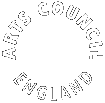THE AFRIKA REICH – TIMELINE
What follows is not meant as a definitive chronology of Nazi Africa. Rather it is a taster of the alternate history I have created for my book with particular emphasis on events that are relevant to the plot.
1919 |
|
Jun |
Post Great War, the Versailles Treaty strips Germany of her African colonies. |
1933 |
|
Jan |
Hitler becomes Chancellor of Germany. |
Mar |
Nazis consolidate their power, effectively taking control of the country. |
1934 |
|
May |
Nazis establish the Kolonialpolitisches Amt (KPA) or Colonial Policy Office. |
1938 |
|
Jul |
Walter Hochburg assigned to Auslander Organisation in Tanganyika to agitate |
1939 |
|
Mar |
KPA begins systematic planning for new African colonies. |
Sept |
Operation Weiss – Germany invades Poland. |
1940 |
|
May |
Operation Geld – Germany invades Low Countries and France. |
June |
Following the ‘Dunkirk Fiasco’ Churchill is forced to resign . |
July |
Colonial fever grips Nazi leadership. |
Sept |
Italy invades Egypt threatening the British garrison. |
Oct |
Summit meeting between Lord Halifax and Hitler in Berlin. |
Dec |
British counter-attack the Italians in Egypt, driving them back to Libya. |
1941 |
|
Jan |
Afrika Korps formed under the command of Erwin Rommel. |
Apr |
Operation Barbarossa – Germany invades Soviet Union. |
Oct |
Moscow falls. |
Dec |
Japanese bomb Pearl Harbour. |
1942 |
|
Jan |
Wannsee Conference in Berlin to resolve the ‘Jewish question’. |
Feb |
Second SS colonial academy established in Vienna. |
May |
Operation Vanille – Waffen-SS invades Madagascar . |
Aug |
‘Quit India Movement’ formed to drive the British out of the sub-continent. |
Sept |
Jews start arriving in Madagascar. |
Oct |
Rommel is beaten back at El-Alamein by the British. |
Dec |
Jerba Conference, Tunisia. |
1943 |
|
Jan |
Operation Banane – German expansion into French West Africa begins. |
Mar |
Rommel retires through ill health. |
Aug |
Germany defeats Soviet Union. |
Sept |
With its grip weakening on India, British government fears for its other colonies. |
Oct |
Running on a “Peace for Empire” ticket, Halifax calls a general election and wins a landslide victory. Fifth National Government formed. |
Dec |
Casablanca Conference, Morocco, to decide the future of Africa . |
1944 |
|
Jan |
Berlin, capital of Greater German Reich, re-named: ‘Germania’. |
Feb |
Operation Sisal – Germany invades Belgian Congo. |
Apr |
Leopoldville, capital of the Congo, falls. |
Sept |
Stanleyville in the east, Congo’s second city, falls. |
Oct |
Hochburg appointed Governor General of German Kongo. |
Dec |
KPA sidelined as administrators of Africa. |
1945 |
|
Jan |
Operation Garnele – Germany invades French Cameroon. |
Mar |
Despite fierce resistance from French forces, Arnim captures the main city, |
May |
German Africa divided into six spheres: Deutsch Kongo, Deutsch Ost-Afrika |
Nov |
Construction of Pan African Autobahn (PAA) begins. |
1946 |
|
Feb |
US forces invade Japan. |
Sept |
US forces reach Tokyo. |
1947 |
|
Aug |
India becomes independent. |
1948 |
|
Jun |
Halifax returned to power but with a reduced majority. |
1949 |
|
Apr |
On Hitler’s sixtieth birthday the River Kongo is renamed the ‘Klara’ to honour the Führer’s mother. |
June |
Windhuk Conference (DSWA) chaired by Himmler and Hochburg to discuss ‘the racial security of German Africa’. |
Nov |
Operation Marmor – after a long running economic dispute over marble quarries, Waffen-SS invades southern Angola and annexes the country south of the Benguela Railway line. |
1950 |
|
Mar |
Number of Jews deported to Madagascar reaches 10.5 million. |
May |
‘Night of the Red Flag’ in Britain: all communist sympathisers interned. |
1951 |
|
Oct |
North Angola intensifies its guerrilla campaign (now clandestinely funded by the British). Hochburg demands action against them. |
1952 |
|
Mar |
German section of PAA opened. |
Apr |
Operation Nelke – German plans to invade North Angola and destroy the guerrilla camps are put on hold due to insufficient manpower. |
Aug |
Plot to assassinate Walter Hochburg. |

